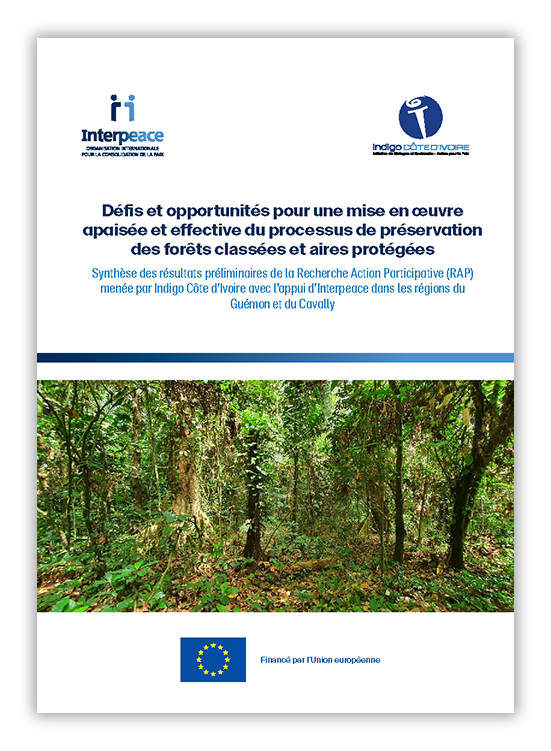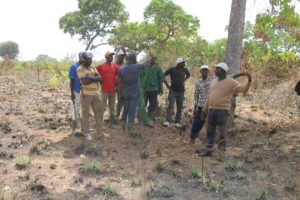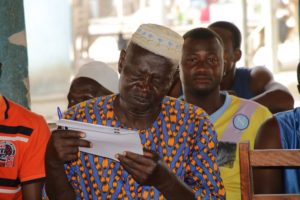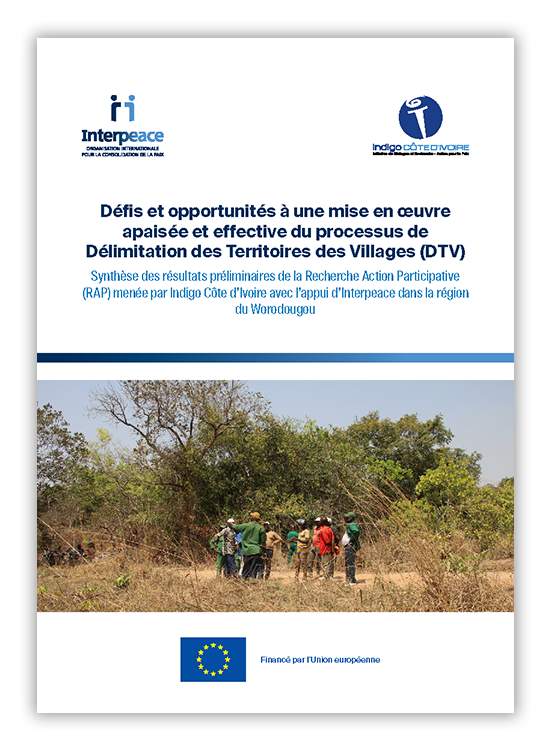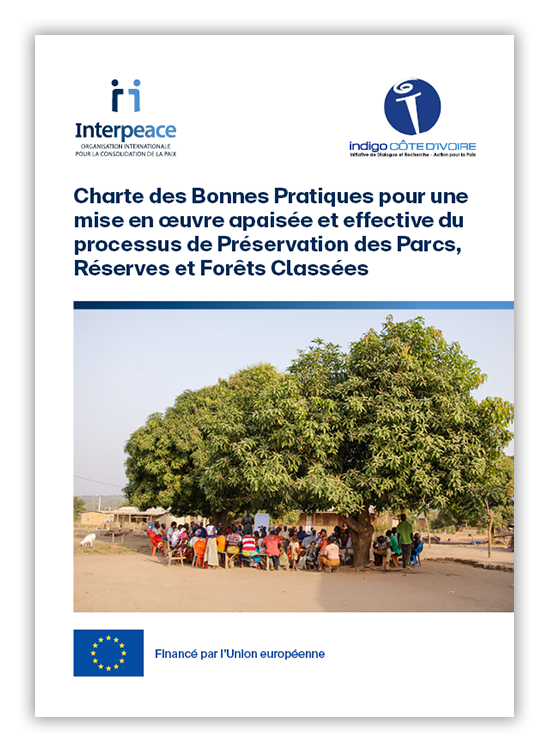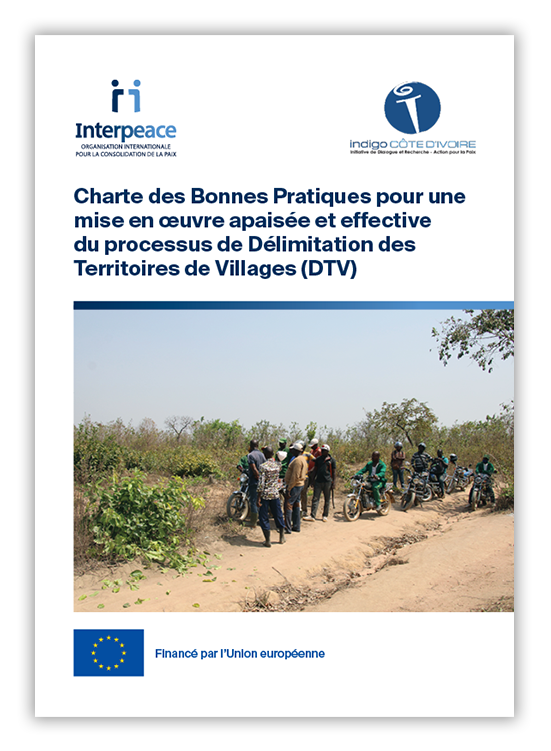Côte d'Ivoire: Putting inclusive governance at the heart of rural land tenure
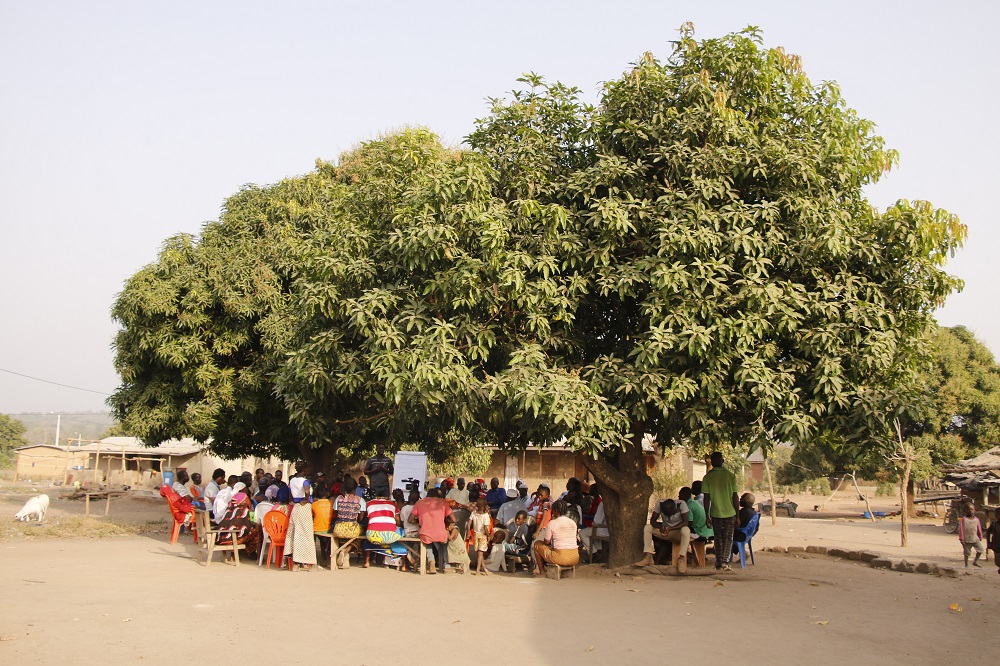
Public policies and arrangements managing the use of land in Côte d'Ivoire now need inclusive collaboration between authorities and populations to settle longstanding issues and prevent conflicts concerning land in rural areas, says recommendations from a broad consultative process facilitated by Interpeace and partner Indigo Côte d'Ivoire. These recommendations have come at the end of a 26-month project that worked to strengthen sustainable and inclusive governance of the State-led land tenure and conservation process in the country. The participation in rural land management project, known by its French acronym PAGEFOR, was concluded during a national forum of all stakeholders held in the main city Abidjan on 31 March 2021.
“The way public policies are implemented can be a source of conflict. Land provides economic opportunities to the population, and is also intimately linked to their history, identity, and social status. For this reason, changing the rules governing the exploitation of a forest, displacing people from protected areas or adjusting the borders of a village can upset the social order and trigger resistance,” explained Margaux Pimond, Programme Manager at Interpeace Côte d'Ivoire.
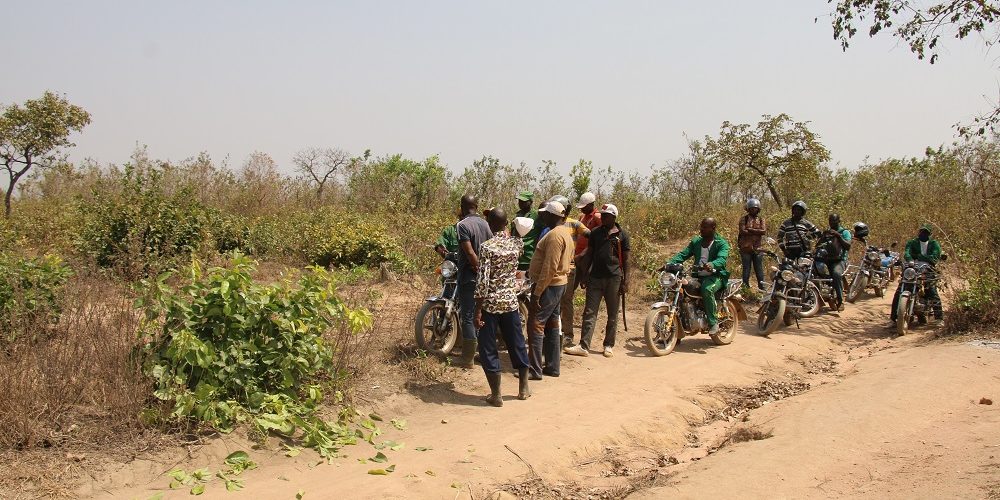
Photo credit: INDIGO
Recent policies implemented to preserve classified forests and to map the demarcation of village territories have caused misunderstandings and tensions in some rural communities in Côte d'Ivoire. Low levels of knowledge about the policies and limited dialogue around the implementation processes have generated mistrust and made it difficult for communities to collaborate, hence creating a serious problem for technical agents to access communities and do their work.
“Before the [village] delimitation process, we thought the State’s policy was to take away our land and that after the demarcation, we would no longer have access to our land,” said Dosso Metogba, Youth President of Massala-Assolo community.
Considering these challenges and their consequences to peace and social cohesion, Interpeace and Indigo Côte d'Ivoire designed and implemented the PAGEFOR project with the goal to improve understanding and ensure that these tensions are managed collaboratively. The project received financial support from the European Union and targeted specific areas in the country.
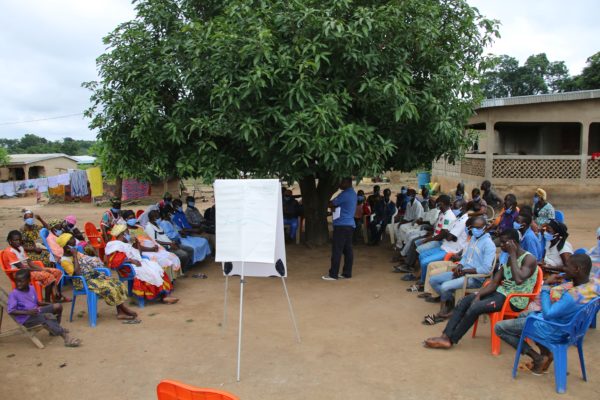
Photo credit: INDIGO
Through this project, our teams conducted a participatory study on the obstacles to the peaceful implementation of the preservation and village delimitation processes. The results informed the creation of collaboration frameworks with community members, local authorities, and technical agents to jointly address these challenges through dialogue and cooperation.
Together, members of the collaboration framework supported communities and all relevant stakeholders; improving their understanding and management of the dynamics linked to the preservation of classified forests and protected areas in western Côte d'Ivoire. They conducted a series of information sessions on the objectives and legal frameworks surrounding those processes and facilitated dialogue around their concrete implications for local populations.
“We were sensitized in the past, but we misunderstood. It was after an activity organised in Barata by Indigo that we understood [properly] and were convinced. We were told what delimitation means, what it allows us to do and what will happen if it does not. This is what led us to create a framework for collaboration with all members of the society,” explained the Massala-Assolo Youth President.
The project also empowered existing collaboration frameworks and local peace committees in the field of rural development with the capacities they need to identify early warning signs, prevent, or mediate any conflicts that are linked to this process of preserving the protected areas or delimitation of village borders.
- Photo credit: INDIGO
"Through the collaboration frameworks and the peace committees that we have set up, I can say that in the two villages I haven't had a dispute for over a year. The communities themselves have mechanisms, they settle the issues and report back to me. If we could put this mechanism in all the villages to manage conflicts, we would breathe, " said Henri Blé Guédé Nahounou, a local administrator in Guiglo.
Through this project, Interpeace and Indigo Côte d'Ivoire have strengthened collaboration between the different actors, improved the inclusivity and sustainability management of the issues in contention, and contributed to social cohesion and peace.
Other recommendations from this project include the need to always conduct an initial participatory analysis of the economic, social, and political issues related to conservation and village delimitation in the targeted communities. This process will give community members and local authorities the opportunity to express their concerns and clarify what is doable within the law. The project also proposes that sensitization processes and tools be reviewed and adapted, to promote a shared understanding of the objectives and the legal, institutional and operational framework of policies managing conservation and village border delimitation.
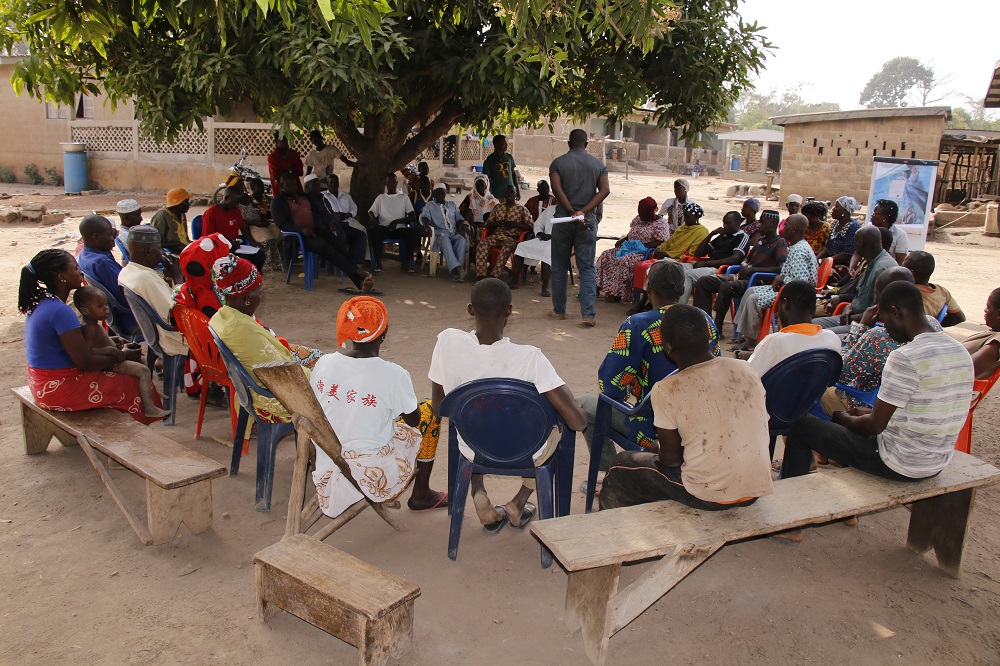
Photo credit: INDIGO
Additionally, it is recommended that context-specific and joint solutions be identified, implemented, and promoted through dialogue. Also, replicate the collaborative frameworks to prevent or manage disputes related to the processes of protecting specific areas and village delimitation. Improving communication between populations and technical agents on the field, as well as the strengthening of communication and coordination mechanisms between political authorities and relevant technical agencies will ensure coherent public action.
Following the success of this project, Interpeace is advocating that the initiative be replicated in other areas across Côte d’Ivoire where issues linked to land management and village delimitation remain a serious concern. The good practices and recommendations from the PAGEFOR project, if reproduced elsewhere, will contribute to more peaceful, cohesive, and collaborative governance of rural land tenure in the country.
Interpeace is now testing the project’s successful collaboration framework mechanism in other conflict contexts such as the prevention of political violence in Abidjan, Bouake (center) and Bangolo (west).
Learn more in links below -
Défis et opportunités pour une mise en œuvre apaisée et effective du processus de préservation des forêts classées et aires protégées en Côte d’Ivoire